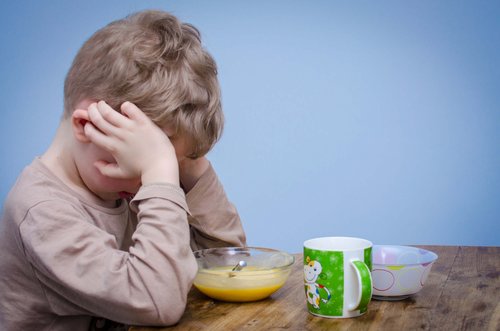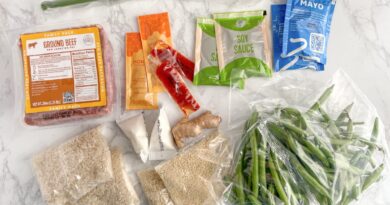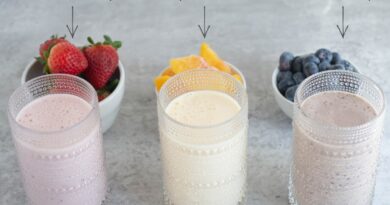7 things you should never say to your picky eater at mealtimes
Meal times with a fussy eater can be exhausting.
You’re probably making the same meals on repeat, half are getting thrown in the bin and you’re in an endless cycle of giving in to requests, just so you know that your little one isn’t hungry.
I get it.
But I bet you’re wondering how to make things better?
Did you know that often the words or phrases you use around food and mealtimes have the power to heal or harm?
I want to share with you some little known tips that come from being a feeding therapist and parent of two fussy eaters and that you won’t find on google.

Words can harm or heal
Words have the power to create calm but more often than not, they cause drama at mealtimes.
They’re often said from a place of anxiety – either yours or your child’s.
You because you just want them to eat…something! Them because they don’t want to eat, full stop!
Here what to avoid saying so you can stop the drama and create that calm mealtime vibe.
“Just One More Bite”
This is such a common phrase that we all have said at one time or another and it comes from a good place. All we want is for our children to be full-up and continue to be healthy.
But, in reality, what is ‘one more bite’ actually giving them? There’s not very much nutrition in a single bite of food and what you’re inadvertently doing is adding pressure to the mealtime.
This ‘food rule’ may have stemmed from your own childhood where you were told to ‘clean your plate’.
Back in the day food might have been scarce, so of course you ate the lot, especially if you weren’t sure about when you might get fed again.
Nowadays the majority of us don’t have this worry and actually children are really good at stopping when they’re full, so my advice is to bite your tongue and try to keep quiet. Don’t say anything at all!
Trust your little one’s internal appetite regulation and know that they will take as much as they need.
“You Can Have Pudding Once You’ve Finished Your Meal”
Withholding dessert until they have finished their main meal is essentially bribing your child by offering a reward.
Pudding is always going to be seen as a reward when you do this because sweet foods are fun foods to children. They actually get a little rush of endorphins when they have them.
But bribes do more harm than good, they negatively affect your child’s relationship with food.
You’re removing their control of what goes into their bodies and asking them to ignore their internal appetite signals which causes appetite dysregulation.
You are also teaching your child that dessert foods are special and are the ‘reward’ that they have ‘earned’.
Pudding becomes placed on a pedestal, a highly desirable prize for the arduous challenge they have to endure (eating their meal) to get it.
So what to do?
Place pudding out on the table with the rest of the meal. Keep portions small so that if they choose to eat it first, it’s not going to fill them up.

“Was That Nice?”
On that rare occasion when your little one does try something new, you’ll probably feel like jumping for joy because you’re filled with happiness and you might want to ask them “was that nice?”
But don’t!
Asking your child to commit to liking something after they’ve just tried it is a huge ask.
Most children will need some time to process this experience, to think about it for a bit, to maybe try it again in a couple of days before they decide whether they like it or not.
My advice?
Do nothing, don’t acknowledge they’ve tried it, don’t mention it and certainly don’t ask if they liked it!
“You Don’t Have To Eat It”
This is a phrase to keep in mind for many food refusal occasions and it’s power comes from the fact it removes pressure.
“This broccoli is yucky” – that’s okay, you don’t have to eat it.
“This chicken looks funny” – that’s okay, you don’t have to eat it.
“This cracker is broken” – that’s okay, you don’t have to eat it.
Do you get the idea?
Watch what happens at a meal when you start using this phrase.
I’ve heard many parents tell me that their little one refused their vegetables at the beginning of the meal but by the end of the meal because that pressure was removed, it moved forward to their little one eating!
We also add “…but you do have to join us” so that our children stay at the table where they’ll pick up a ton of sensory experiences just by being there and it’s this sensory learning that helps move reluctant eaters forward.
It’s Ok To Say “No”
Some children constantly seem to be hungry. They may be repeatedly asking for snacks.
Some don’t eat much at dinner and then want snacks to fill up on.
It’s ok to say “no”.
If you have a regular schedule for meals and snacks and you are confident that you are providing nourishing foods appropriate for their age and stage, then it’s unlikely that these constant requests are due to hunger.
Most children benefit from 3 meals and 2 snacks per day, spaced apart with a gap of around 3 hours or so.
If they haven’t eaten well at one of these meals or snacks, you can adjust the next one to compensate.
Don’t get in the habit of offering them a ‘rescue meal’ when dinner is rejected. This leads to fewer and fewer foods being accepted and unfortunately, nutritional deficiencies.
If they are used to getting their own way and having more than one snack in between meals, it’s likely that they have no incentive to eat at mealtimes because they know something better is coming along soon.
Be the parent, set your boundaries and limits and don’t be afraid to say “no” if your child tries to cross them. You’re not being cruel, you’re teaching them to eat according to your family’s routine.

“Well Done For Eating Your….(Insert Food)”
Well done is praise, and praise turns eating into a performance.
Children should never be congratulated for eating (or not eating) something and it’s certainly not a performance sport.
As soon as eating becomes something to be measured by, it amounts to pressure, and pressure causes a rise in adrenaline.
Our brains react to adrenaline causing us to freeze (stop eating), fight (tantrums) or flight (run away).
These reactions stem from our cave men days – our modern day brains haven’t quite caught up yet – but obviously there’s not much eating going on when your body thinks it’s being chased by a saber-tooth tiger!
“Spinach Makes You Big And Strong”
Mealtimes are not the right time to teach your children about healthy eating, or nutrition or even which foods on their plate are good for them.
If you do, you draw attention to whether foods are ‘good’ or ‘bad’ and take away attention from the pleasurable aspect of eating.
Mealtimes are meant to be happy, family occasions, not the classroom.
Oh and you might want to know that children under 7 associate healthy foods with being ‘not very tasty’ and ‘just for adults.’ Leave the nutrition education for secondary school.
How do I know if this is just fussy eating or whether there is a bigger problem at hand?
Some children are more than just fussy eater. There are just 3 reasons why children won’t eat:
- The can’t eat – they haven’t got the skills
- The won’t eat – their sensory system means eating is unpleasant
- They’re being prevented from eating – because of what we as parents do at mealtimes
I’ve created a quiz to help you identify whether your little one is a fussy eater or a problem feeder. Give it a try to make sure that you are supporting your child in the right way at meal times.
If you would like a PDF version of this blog delivered directly to your inbox, pop your details below.

The post 7 things you should never say to your picky eater at mealtimes appeared first on The Children's Nutritionist.




